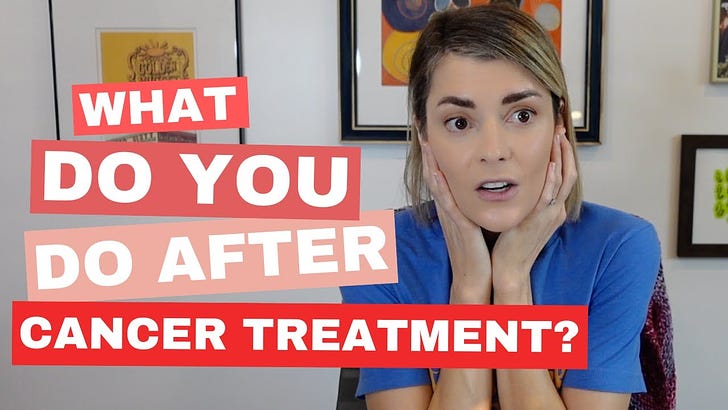Welcome to Gen Z Translator. This is What’s Up Wednesday, where I give you a personal update on a Wednesday. Clever, right? If you’re new, you can subscribe here and follow me on X/Twitter or Threads. Views and experiences my own.
I realized in therapy last week that I’ve been giving myself a hard time.
I’m constantly looking for the “right” way to do cancer. Is that to make other people as comfortable as possible? To be as needless as possible? To grin and bear it, or better yet, shut up and deal with it?
I picture an old high school frenemy or journalism mutual reading through my newsletter and judging me for wasting my time – or having too much fun with it. The solution to that is, of course, who cares what they think?
The problem is that I’ve been primed to think about what other people think for ten years at this point. Even now, I’m wondering what you’re thinking.
I got into journalism my freshman year of high school. There was no creative writing course, so I opted for Intro to Journalism instead. I published my first op-ed that year. By sophomore year, I was on the editorial staff, and then I was a editor-in-chief for two years after that. I even ran our scrappy social media accounts. When people asked me what I wanted to do, I had an answer, even as a 15-year-old.
I worried for a while that I peaked in high school. I won a couple awards from big name scholastic organizations and attended journalism conferences yearly. I remember when I came home from college after my first summer, a high school colleague called me a prodigy when I ran into her in a coffee drive-through.
I felt like I had to climb the journalism ladder again in college because of the reputation I had built for myself. Journalism is the *perfect* industry for someone who both strives for perfectionism and absolute dreads constructive criticism.
Hence, taking a step back from my journalism career has been a little disorienting. Obviously, it’s nuanced, but for the most part journalism is about finding the “right” answer and the “wrong” answer. I’ve taken that approach to being sick too. How dare I not be miserable and idle during this period? At the same time, I’ve felt the need to be intensely productive, or else this time is wasted.
Now, the hardest parts are coming to a end. My follow-up scans showed “no residual mass.” Like, we couldn’t see any evidence of the tumor on my MRI images (!!!) My brain didn’t know what to do what that revelation. It’s a huge, huge win.
I think in the video at the top of this newsletter, Grace Helbig did a great job explaining this strange limbo that comes about in cancer treatment. There’s spiraling, compartmentalizing, and existentialism that happens about the present and the future. She said it best:
I’ve been having a lot of good, positive, forward momentum and then once a week, I will have a little emotional spiral where I’ll just get very overwhelmed by trying to make up for lost time...I got to make sh*t and accomplish things so that I feel like I have value…The tension of wanting to do everything and also nothing – what do you do with that?
Internal dialogues aren’t always helpful, and mine has been telling me I need to feel guilty for finding joy and hope during this time in case it’s all stripped away. I’m forgetting I’m a person outside my productivity and my diagnosis. Moving closer to reintegration into society only worsens this fear.
I was very cautious to make future plans at the beginning of this, but now I’m looking forward to things a year away. I’ve liked joking and laughing through this process as much as I can while finding as much normality from the outside world as possible.
The solution to my dilemma is to live in the moment and let myself feel enjoyment when I can, no strings attached. I have to remember that cancer patients can have fun, too.
You can read my last health update here ⤵️
What's Up Wednesday: My final round of chemotherapy | Health Update #4
Welcome to Gen Z Translator. If you’re new, you can subscribe here and follow me on X/Twitter or Threads. Views and experiences my own. Today was chemotherapy round six of six! Finding out I have cancer was never in the plan, as I’m sure most people with cancer would tell you. I’m a worrier, always trying to plan for the worst case scenario, but even ca…






